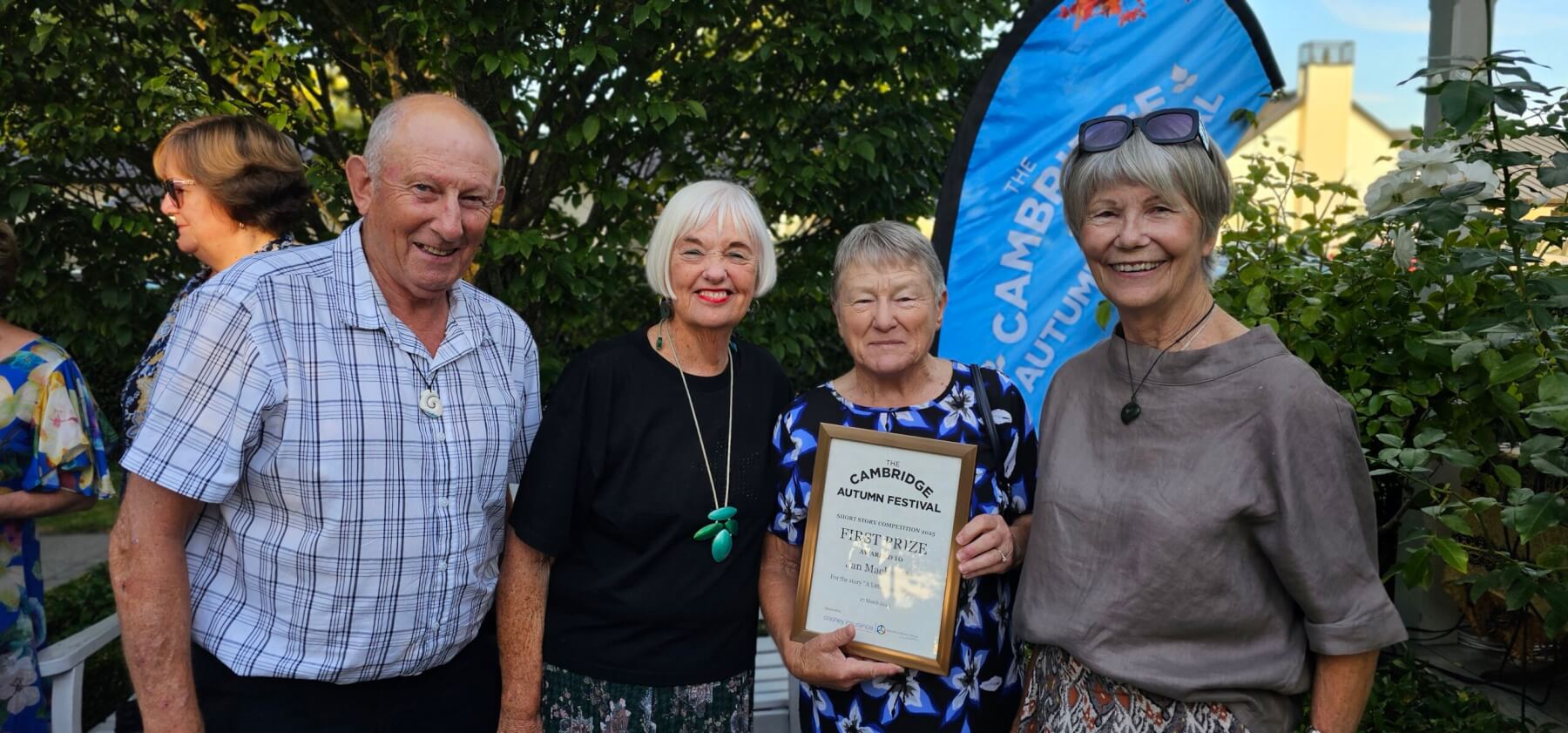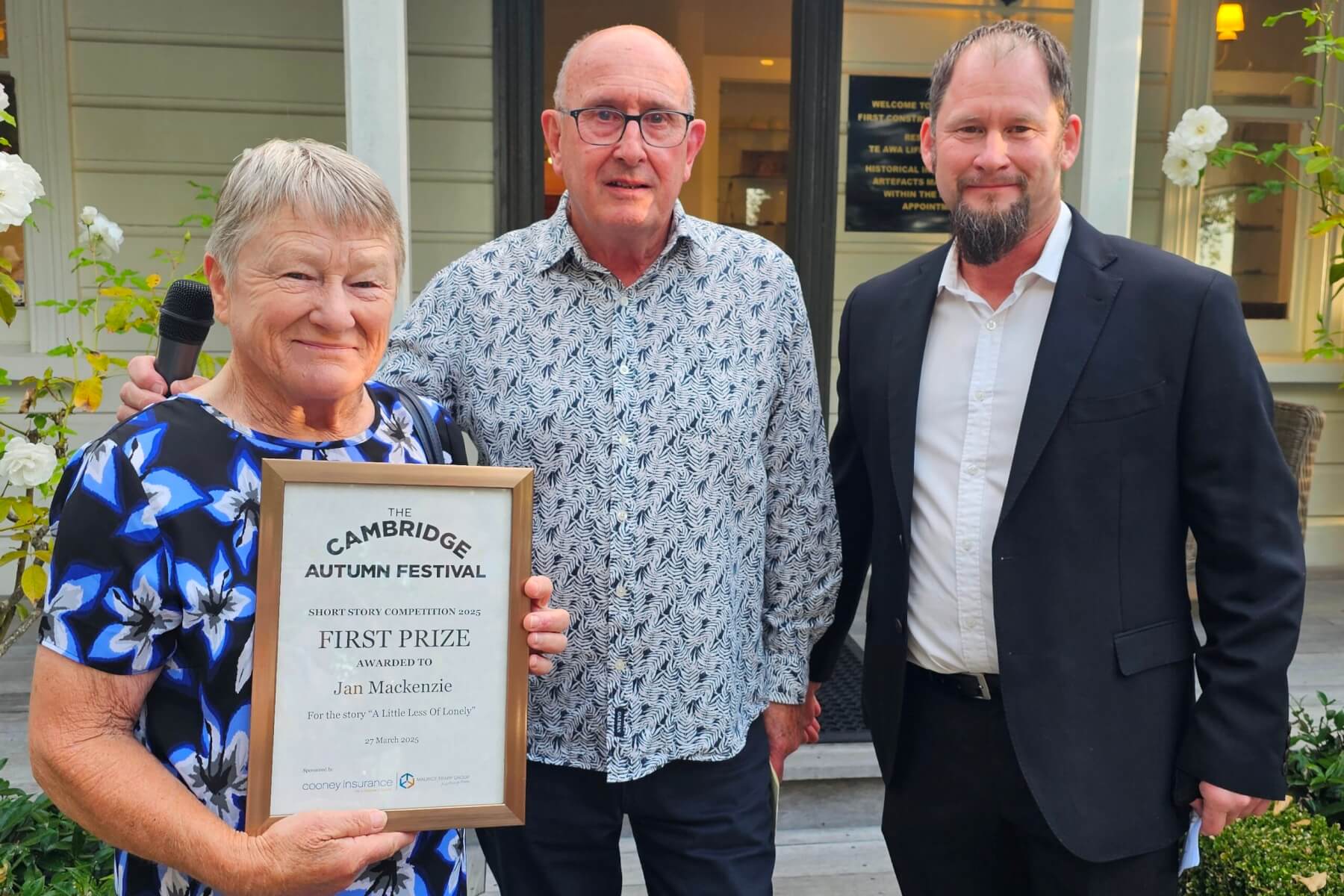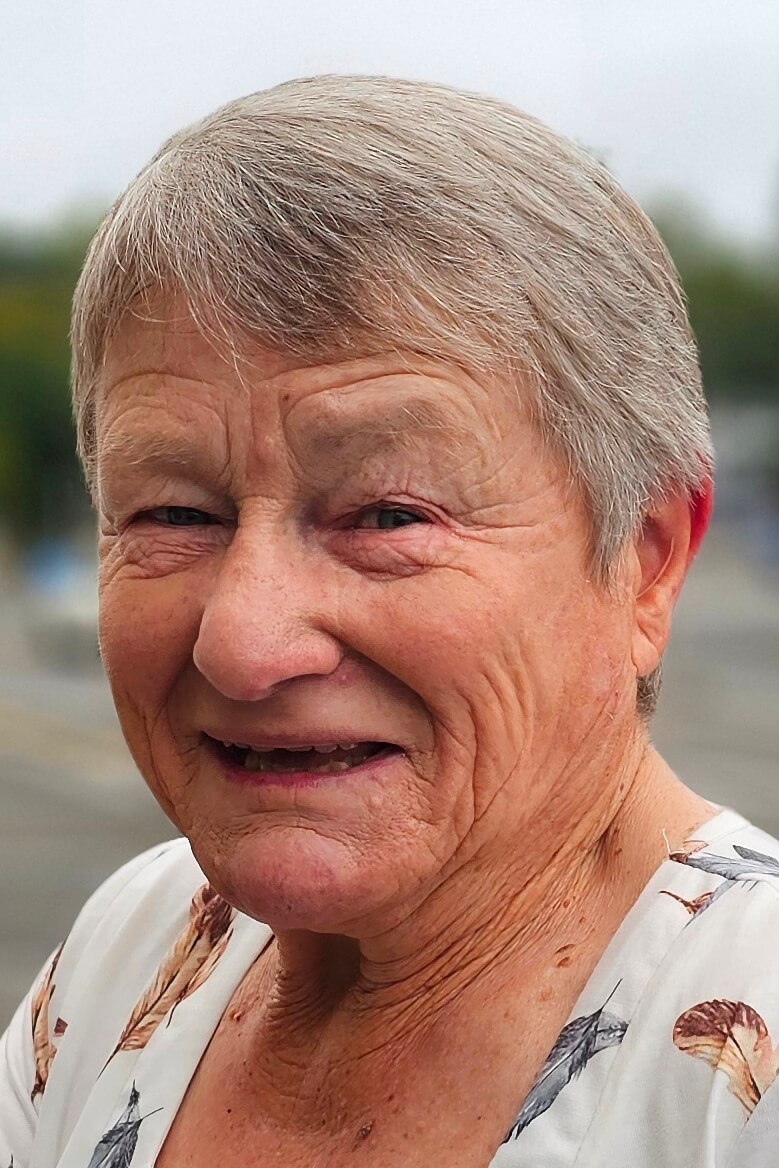When the big square bales dropped off the forks, they knocked the land-girl flat.
She hadn’t heard him coming. Plugged into her Walkman, broad back turned to him, shovelling out years of an old leak in the hayshed spouting. He should have fixed it, but you didn’t keep a dog and bark yourself.
“Clean out the soft stuff,” he’d said, “and throw some shingle in to stop the bottom bales from rotting.”
His hand slipped on the controls.
He sat thoughtfully on the tractor, studying the situation. The top bale had skewed to one side but the bottom one sat squarely on the ground, pressing her body into the bog. Dead or not, she wasn’t going anywhere.
He ticked off a mental list. The isolation of the farm. The baling contractor, gone yesterday. The land girl, invisible inside, working on the books while the hay was baled. Himself carting the hay in, and plenty of daylight left. The girl, having told neighbours she was leaving, not. No-one but him knowing that.
He put the tractor into gear and went to work. The last light, whispering its way over the farm, showed the paddocks clear and the huge shed, full. He fell into bed untroubled.
In the morning, he poured diesel on her gear and burned it in the drum, the smoke hidden by low clouds that had gathered helpfully while he slept. He added rubbish of his own and burned that too, sifted carefully through the ashes. He fixed the hayshed spouting. For a while he thought he’d put her and all she was to him away but he’d been a fool; his stubborn mind, inflexible as a concrete octopus, stuck in neutral and refused to let him be. He dreamed of hands…his hands…deliberate on the controls. He dreamed he heard her startled scream.
April. Autumn. Winter coming fast and hard. He’d slogged through spring and summer, didn’t mind autumn but winter… weeks of rain, cattle up to their knees in mud, bawling to be fed. Strip-grazing grass and kale to make it last, watching his stock get thin and thinner. Screwing up the paper in disgust when some bloody townie who’d never been near a farm in his life splashed front-page photos of mud and cattle, bold-type headlines shouting cruelty to animals.
The list of what he missed got longer… his wife, cleared out with the rural delivery man. The house warm when he came in finger-frozen from the farm. Food that wasn’t cold meat and plastic gravy. A warm body to climb into, instead of his ice-cold forty-acre bed.
He was tired. Of discussing world events with the dogs just to hear his own voice. Of missing the lap-cat that cleared off when his wife did. Of all the splintered shades of lonely.
Which is why he stared so long at the ad on the back page of the local rag.
Available now,
Experienced Land-Girl.
Have thistle grubber. Will travel.
No ties.
Call me…021………….
It might be an April Fool’s day joke but what could he lose? He shrugged and rang the number anyway. Yes, she was available, would a week from now be ok? It would.
He asked the proper questions; yes or no. Ride his battered bike, yes. Grub thistles, yes. Find and fix the shorts in the electric fence system, yes, and yes to cooking, cleaning, working dogs and lambing ewes.
He didn’t ask about “Experienced”, but his body did a little leap at that one. Could it mean what it said? Could it mean a little less of lonely?
She’d be here on Monday. Six days to fix the house. Tear down the mouldy shower curtain, scrub the ring around the sink, send the washing machine into panic mode with piles of dirty washing. Jackhammer the stove and the oven with their baked-on fry-me, roast-me grease.
He left the bedroom until last. That wistful body leap again, the just-in-case rush to drag off dirty sheets, turn the mattress with its mysterious stains. The windows, man, open the windows! Musty linen from the cupboard in the hall, hung out in the wind to flap the stale away.
Winter came. She wasn’t pretty but then, he wasn’t either. It didn’t matter. With two of them, the days were not so long. The house was warm, the dinners good. On Wednesdays he knocked politely on her door, and when she told him no, he went away. Until the night she let him in.
He’d loved her then, or something near. The rusted chains of should and must dropped puddled at his feet. He liked his life the way it was, the now of it, worked harder, laughed longer. He saw the sun and felt the wind and watched the bright grass grow.
The neighbours saw the change in him, the worried frown that lifted from his face.
They told him “she’s a keeper” and they said “you could do worse.” It struck him hard. This time his body didn’t leap.
He thought about the future. The committees he would serve on, the council. The by-elections. The beehive. The well-bred, lovely girl he’d dreamed of on his arm, the mother of his children. The inside farmers’ wife.
It wouldn’t do. The land-girl wouldn’t do.
In spring, it wasn’t cold and he forgot. Forgot the rain, forgot the mud. Forgot the laughter, and the forty-acre, lonely bed. Forgot he couldn’t do it on his own.
The land-girl read the signs. She looked for work, but hadn’t found a job so far, to let her travel on. The neighbours shook their heads for her and thought the man a fool.
No-one asked about her, but then, he hadn’t thought they would. She’d been around. “No ties”, her ad had said. “Have thistle grubber, will travel.”
Over many winters, he fed out the hay, leaving the four rows against the back wall untouched. If he’d been asked, he’d have said it was to have some in reserve, but who would ask? He farmed alone, he managed as he chose.
It was pure bad luck that two things met and merged. The drought struck first, three dry years in a row that stopped the grass from growing and ate into his store of feed. He bought in ryegrass and barley straw, to supplement supplies.
His recovery from the stroke that left him immobilised and speechless, was slow; not helped, the doctors said, by his frantic attempts to communicate. His neighbours, meaning well, emptied the hayshed to keep his stock alive.
Uncovered broken bones. Arms outflung. A shovel. The land-girl, never looked for, never missed.
Cradled in the land-girl’s womb, the baby never wanted, never held. Spring, summer, autumn, rolling on, and winter, coming fast and hard.

Jan Mackenzie with her certificate surrounded by, from left: husband Ken and judges Denise Irvine and Venetia Sherson. Photo: Mary Anne Gill

Sponsors David Cooney and Steve France with short story winner Jan Mackenze at the Autumn Festival launch, Te Awa. Photo: Mary Anne Gill









